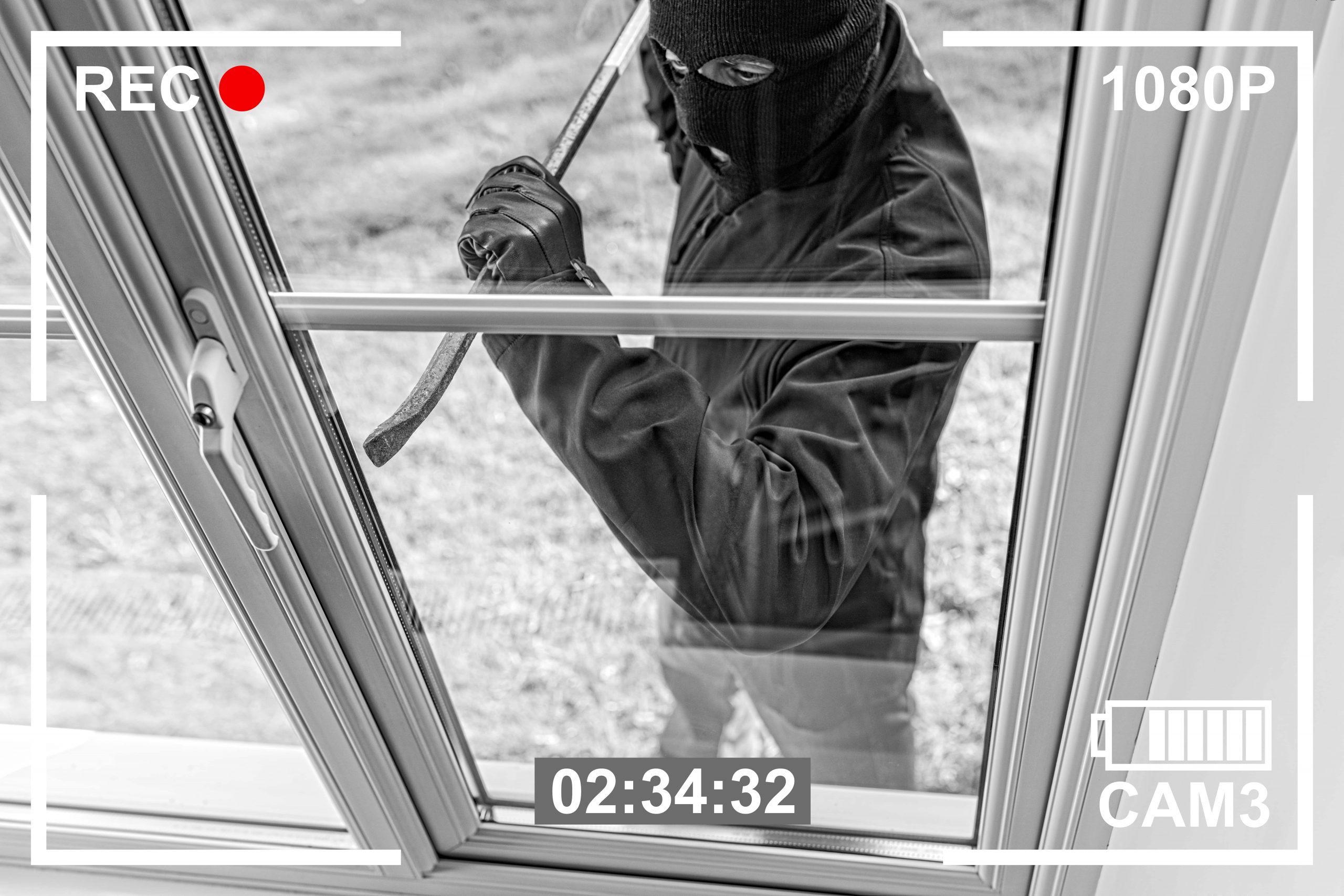Break And Enter To Commit Serious Indictable Offence – s 112(1) Crimes Act 1900
Break and enter is taken extremely serious by the courts in NSW. Charged with this offence causes significant anguish to you and family. Our experienced defence lawyers in Sydney regularly appear in all court in NSW and can provide you with realistic and practical advice on the best defences available to you.
Our specialist criminal lawyers have an exceptional reputation and track record for getting charges dropped or downgraded at an early stage before your hearing. This is continuously achieved with their strategic and relentless approach catered to your case.
One of the many more popular cases we achieved a section 10 for was our client who committed the offence of aggravated break and enter six months before he was held hostage in the December 2014 Martin Place Lindt siege incident by Man Horan Monis.
Call us now on (02) 8606 2218 to book a free first consultation with an experienced Break and Enter Lawyer.
Your Options in Court
An experienced criminal defence lawyer will be able to guide you through the entire process, point out the strongest defences available to you and then focus on maximising your chances at proving your innocence.
Before you can be found guilty for break and enter, the police must prove the following elements to the court beyond reasonable doubt:
- You committed a ‘breaking’ and ‘entered’ the house or building
- In this element, there doesn’t need to be an actual breaking of an object such as window or door when you enter. It can be considered a breaking, for example, where you un-latch a window that was already open, or by opening a door that was closed but not locked.
- Whilst having entered, you commit any kind of further offence carrying a penalty of five years or more imprisonment. For example, assault or steal.
If any of the above elements are not proven, your charge will get dismissed in court. Sometimes the police and DPP can be convinced to drop the charge early on in your case through extensive negotiations.
Our experienced defence lawyers first focus is on getting the charges dropped or downgraded early and have been successful in doing so on countless occasions, with a proven record of success over the years.
Defences to this charge
You will be found not guilty and the charges dismissed if any of the following apply to your case:
- When entering the house or building, all that you did was further open an already partly opened door or window. The law does not consider this to be a ‘breaking’ as was held in the case of R v Lackey [1954]. There are two types of ‘breaking’:
- Actual breaking, which is where the security of the house or building is tampered with. There does not necessarily need to be an actual breaking of an object.
- Constructive breaking, which is entering a house or building by fraud, threats or use of a key which you do not have permission to use. But, it’s not ‘breaking’ where you believed you had authority to enter.
- Where the offence involves breaking and entering and ‘stealing’, but you honestly believed you had a right to the item taken. This defence is a ‘claim of right’ held in the case of R v Lopatta (1983).
- Where the serious indictable offence alleged to have been committed is not an offence carrying a penalty of 5 or more years imprisonment.
- You did not enter the house or building.
- You had, or genuinely thought you had authority or permission to enter the house or building.
- You entered the house or building due to necessity or duress.
Our highly experienced defence lawyers attend court regularly for these charges and will give you immediate, accurate and realistic advice on the strongest defence available to your case.
Your case will be taken on by a senior highly experienced specialist defence lawyer, with a proven track record of exceptional results, from beginning to end, who will fight tirelessly to prove your innocence and powerfully present your case.
Before pleading guilty in court, it is highly advisable to speak to an experienced defence lawyer who can advise and guide you with quick reliable realistic advice. Our expert senior lawyers work around the clock, with proven success, to maximise your chances at getting the best possible, most lenient result. This in some cases means getting a s10 non conviction, and in others, avoiding prison.
If you decide to plead guilty to a break and enter charge, below is a guide into preparing your case to significantly maximise your chances at getting the best and most lenient possible result in court.
25% discount on punishment
The law says that you will receive a discount on your punishment of up to 25% if you enter the plea of guilty at the earliest time in your case, resulting in a lighter punishment to you. In some cases, this can mean avoiding a prison sentence, and in other cases, it can mean a section 10 non conviction.
Delay can result in loosing out on this benefit which is why it’s very important to receive quick and experienced advice from expert lawyers who are well versed with the law with an exceptional working knowledge of practical court proceedings. Our senior specialist lawyers regularly attend Local, District and Supreme courts in Australia who are extremely well versed in the law in a realistic and practical way.
Good character references
Good character references can be powerful ways to convince the Judge to reduce your punishment by expressing your otherwise good character.
A good character reference can be from your employer, friend, family member, charity organisation and includes a letter of apology from yourself expressing your remorse, insight and contrition, as well as the good things these people have seen you do in the time they know you for. This allows the Judge to further reduce the punishment.
Our experienced specialist lawyers regularly see and use character references in court. They will guide you and review each one before handing it to the Judge.
Negotiate to drop charges
Your charge of break and enter can potentially be dropped or downgraded to a less serious charge attracting a much more lenient punishment. Our experienced specialist defence lawyers have successfully achieved this on countless occasions as they take pride in specialising in this area.
Our senior criminal lawyers often achieve this by reading the police evidence and having a very thorough understanding of it, pointing out every problem in their evidence and then tactfully approaching the police when negotiating. This way, it significantly increases your chances of successfully achieving this goal.
Negotiate facts
The facts sheet is a typed story of what you did, how it was done and where it occurred usually drafted by the police. These police facts are often inaccurate and one sided, painting you in the worst possible light. It is one of the main things the Judge will look at when deciding your punishment which is why it’s very important to negotiate and change it to reflect what really occurred, painting you in a much better light, leading to a much more lenient punishment.
This can be often achieved by having a good understanding of all the police evidence and then pointing out all the things that don’t make sense before approaching police. Our experienced senior lawyers always pursue this and hold a proven track record of successfully achieving it over the years.
Psychologist reports
It may be necessary to refer you to leading experts in other fields such as psychiatrists, psychologists, counsellors and rehabilitation programs for drugs and alcohol or any other reasons.
We have personally hand-picked these experts to assist you and your case for a powerful report to give to the court leading to a more lenient punishment.
Getting a well written psychologist report from an experienced and highly respected expert can significantly improve your outcome by giving you a much lighter punishment for the following main reasons:
- Only an expert psychologist or psychiatrist can diagnose you with a mental illness if you have one. If you do, and it is expressed in the report, particularly if it makes a connection between your offending conduct and your mental condition, the law is designed to punish you much lighter.
- A report is a great way to express your remorse, contrition and insight. It is also a great way to express your perspective of why you committed the offence without giving an excuse allowing the Judge to be more lenient on you.
Maximum penalty
The maximum punishment under the section for this offence is up to 14 years imprisonment. The courts do not normally impose the maximum, as this is generally reserved for the most serious kinds of offenders.
Types of penalties
Penalties other than full time prison are available. The punishments that the Judge can impose include any one of the following:
- Section 10 Dismissal
- Conditional Release Order
- Fine
- Community Correction Order
- Intensive Correction Order
- Full Time Imprisonment
Our team of highly experienced specialist criminal lawyers appear daily in court. They will thoroughly prepare, and powerfully present your version of what happened in a strategic approach to persuade the Judge giving you the most lenient punishment possible for your case. With a proven track record of exceptional results, our team of experts have a reputation for formulating the most strongest and compelling submissions to the court, maximising your chances of getting the best possible result.
FAQ
This offence includes breaking and entering into a house or building and then committing any kind of offence under the law that carries a penalty of five or more years of imprisonment. Common offences of this kind include stealing or a range of assault offences.
 (02) 8606 2218
(02) 8606 2218








